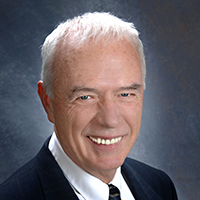Course Description
This course examines a wide variety of drivers and situations that affect the environment of the fire station. This ranges from the history of the fire service and as a result its effects upon the structure of the local fire department, to that of legal drivers affecting the staffing of both volunteer and career fire stations. Additional areas examined are of the roles of local government, unions, and chief officers, as well as the necessity to effectively address the continuum of dealing with change.
Course Outline
Unit 1: Municipalities and the Fire Service
A review of the forces affecting municipalities including municipal budget process, case law, and liabilities of municipalities and fire departments.
Unit 2: Chief Officers
Gain an understanding of the limitations and responsibilities of Chief Officers, as well as the various stakeholders with whom they interact.
Unit 3: Employment Equity and Equal Access to Services
Recognize types of discrimination and learn about the application of equal opportunity and the advantages of a diverse fire service work force.
Unit 4: Unions
An examination of the relationships between management and unions.
Unit 5: Promoting Change in the Fire Department
An appreciation of the social, psychological, and fire department structural reasons for change, together with an understanding and application of Greiner’s fire department research.
What You Will Learn
- A better understanding of the municipal and volunteer structures that affect the delivery of fire services.
- An appreciation of the dynamic social and legal forces that affect insular fire department structures and delivery systems.
- An ability to deal with the consistency of change within the fire service from both a personal and organizational perspective.
Notes
For more Fire Service Management courses click here.
The Faculty of OLCD recommends an intermediate level of English language proficiency for the most effective learning and participation in our online and face-to-face courses. A list of minimum recommended scores on some common English tests can be found on our website. If you have questions about your English language proficiency and ability to succeed in this course, please contact openlearning@dal.ca.
Prerequisites
Please note: A minimum of three years of fire-related (career or volunteer) experience is required for enrolment into the courses that make up the Certificate in Fire Service Leadership. You are able to enrol in this course but you will receive a warning message when you check-out. Please click the "Continue Checkout" button to by-pass this warning and complete your payment.
Once your registration is received, you will be contacted by the Program Manager to verify your experience. If you do not meet the requirements, your tuition will be refunded.
Prerequisite: A minimum of three years fire-related (career or volunteer) experience.Recommended For
- Any firefighter who wants to become an officer.
- Junior officers in career fire departments.
- Any officer in a composite fire department.
- Any officer in a volunteer fire department.
Applies Towards the Following Certificates
- Diploma in General Fire Leadership : Required - Certificate in Fire Service Leadership
- Fire Officer III Accreditation Track : Required
- Fire Officer III Certification Track : Required
- Certificate in Fire Service Leadership : Required
- Certificate in Fire Service Leadership : Required
 Glen is the retired Director of the JIBC Fire Safety Division and the retired Fire Chief General Manager of Vancouver Fire and Rescue. He holds an MSc in Emergency Health Services from the University of Maryland, a BSc in Advanced Fire Administration from what is now Western Oregon University, a Certificate in Integration of Health Services from the University of Helsinki and a Pre-Doctorate Certificate in Teaching in the Virtual World from Fielding Graduate University.
Glen is the retired Director of the JIBC Fire Safety Division and the retired Fire Chief General Manager of Vancouver Fire and Rescue. He holds an MSc in Emergency Health Services from the University of Maryland, a BSc in Advanced Fire Administration from what is now Western Oregon University, a Certificate in Integration of Health Services from the University of Helsinki and a Pre-Doctorate Certificate in Teaching in the Virtual World from Fielding Graduate University.